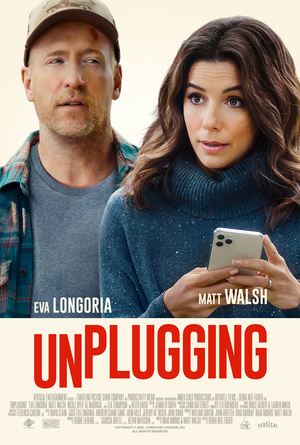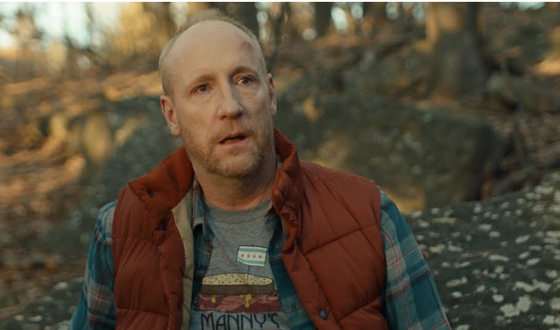

[Rating: Rock Fist Way Down]
In theaters April 22 and available on Digital and On Demand April 29, 2022.
Between our phones, TVs, cars, and tiny floor cleaning robots, we live in a new technological world. Notably, with the release of the iPhone in 2007, the emergence of smart devices have drastically jolted how we interact with one another throughout our daily lives. However, in the past 15 years, black and white criticism of our technological-infused socialization has painfully stayed the same. Without nuance, the argument of “phone = bad, nature = good” falls flat in assessing the current state of the world. Unplugging champions this outdated stance and thus falls flat with it.
While Unplugging generates more nuance on the impact of technology in our daily lives as the film progresses, a bulk of the runtime feels like a lecture everybody’s heard and nobody asked for. The film plays like a hallmark original trying to be edgy with a few f-bombs, sexual content, and the most tame “I took too much edible” scene I have ever seen. Eva Longoria is great in many ways, but she can not act stoned if her life depended on it. Stuck in a secluded home in the middle of the woods without electricity and anything to do, the business focused Jeanine, played by Longoria, decides to let loose and take one of her husband’s weed edibles while he’s gone. Just one, quickly becomes another, then another, and then another, and while you expect Jeanine to do her best plane impression being high in the clouds, she instead just makes a lot of food and exclaims “she likes the high version of herself” in the same vocal cadence she’s had the entire film. Perhaps that was a directorial or script choice, but either way, the film plays with a ‘Chekhov’s Gummy’ and fails miserably.
A drug scene not played to its fullest may not seem like that big of an issue, but it speaks to the entire film’s lackluster approach in committing to the bit. As the sentiment and themes become stale in the first 10 minutes, the comedy is left to be its saving grace. Co-written by and starring comedian Matt Walsh— not the Matt Walsh conservative commentator even though that would make sense with its “change is scary” attitude—you would think that humor would be in good hands. Unfortunately, Walsh’s humor seems a better fit on the screen than in his script, as Unplugging’s cookie-cutter style and jokes pull the plug on comedy.
Playing opposite to Longoria’s cliche “I only think about business” Jeanine, Walsh plays Dan, a stay-at-home dad mid mid-life crisis after being let go from his job, now running an artisanal hot sauce business out of their garage. Not comical enough to take on an oafish archetype, Walsh plays Dan like the straight man, gutting the comedic and romantic chemistry he has with Longoria. However, the narrative focuses on bringing the spark back to Dan and Jeannie’s marriage, even though the film does very little to show that it was ever there. To save his marriage, Dan plans a couple’s getaway to a remote mountain town somewhere outside of Chicago, without phones or other modern technology to distract them. Jeannie is resistant to the idea, but after her work gives her a 2-week sabbatical because she is ‘too into work’ she goes along with it.

The film utilizes its staggering opening to present the differences between the couple and the damage that technology and their approach to life have done to their marriage. Conflict is baked into their surface-level relationship, yet it never manages to fully come forth. The first hour of the film is spent repeating the same thoughts on technology that grandfathers exclaim when saying how things were when they were your age. A somewhat fiery exchange ramp up the conflict near the end, but is then swept aside once all is forgotten in the next scene.
Unplugging feels like a film that was made just to be made. It carries little to no emotional weight, where the finger-pointing of why can be directed in many ways. There aren’t technical aspects that stand out as exciting and there aren’t choices that capture engagement or creativity. With bland comedy, everything falls on the shoulders of the two leads and together they aren’t strong enough together to keep it up.
The best moments of the film come towards the end and by the time they do, it is “too little, too late.” There are flashes of a noble effort in ideas, but often it is merely repeated talking points that do not hold potency to the current times. When a character in a film acts like an over-the-top fictional character in a film like Jeanine’s over obsession with her phone and work, it prevents the themes from packing an effective punch. Phone addiction is real and is an interesting topic to explore. But when you want to present it as a serious issue to learn, it is better to have a more grounded approach rather than an unbelievable bit that is more fitting for Sesame Street.





Comments on this entry are closed.